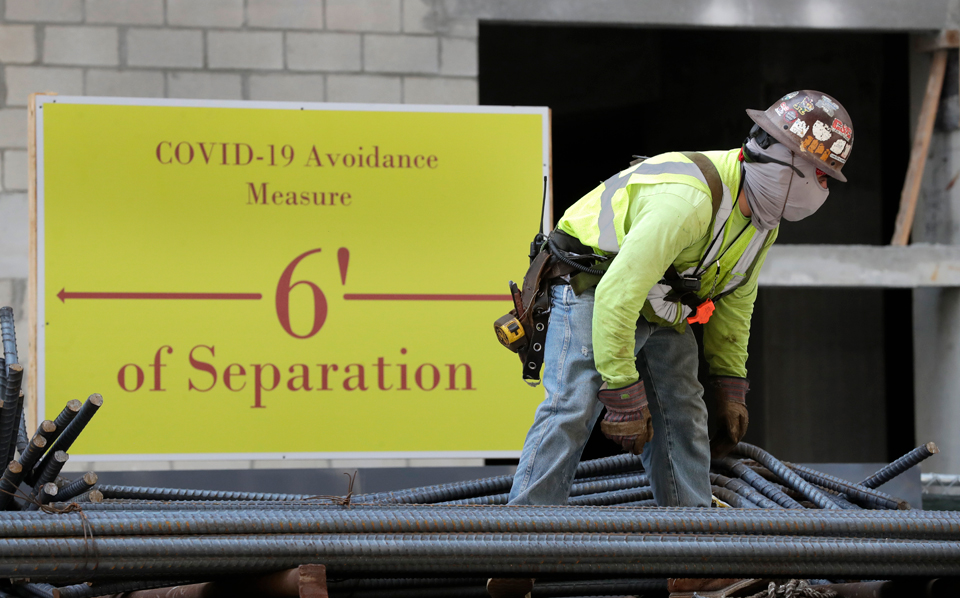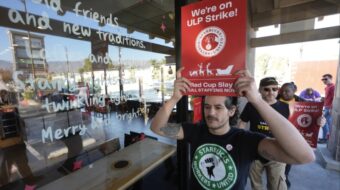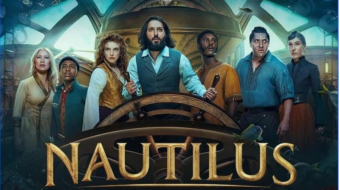
Who’s an “essential worker” in the time of the coronavirus pandemic and subsequent shutdowns, financial decline, and rising joblessness from coast to coast? And who isn’t?
We ask because that’s a big issue these days as the country struggles to figure out who should go back to work, armed with masks and other protective gear, against the viral disease and deaths. After all, virtually everybody and his mother-in-law is essential to somebody.
The federal Centers for Disease Control added to the controversy by relaxing guidelines for when workers who had been exposed to a coronavirus victim—but who themselves hadn’t shown symptoms or who had recovered from the illness—could go back to work. And CDC listed categories of “essential” workers on the “infrastructure” that makes the economy go.
Those workers included police, janitors, grocery and farm workers, IT workers, and several other categories. A surprising omission: Nurses. A second one: Home health care workers.
The relaxed guidelines set off quite a brouhaha, with the National Council on Occupational Safety and Health saying CDC’s new standards could put workers in harm’s way.
That’s not our point. Our point is that rather than calling workers essential by occupation—a great way to turn worker against worker—let’s call them essential by class.
Let’s reward and protect the workers who really make our economy and our society go. Protect them against the coronavirus, as NACOSH says, and add hazardous duty pay, too.
And stiff the others, almost all of whom are “investors,” Wall Street whizzes, hedge fund honchos, and the criminal corporate class, including the profiteers who rip the rest of us off during a pandemic, taking advantage of people’s suffering to earn a few extra bucks.
A sanitation engineer who works for a firm owned by Jeff Bezos is essential. Multi-gazillionaire Bezos himself is not. A nurse is essential, a hospital administrator is not.
A teacher who instructs her kids via videoconferencing is essential. Anti-teacher ideological GOP multimillionaire/Donald Trump’s Secretary of Education, Betsy DeVos, is not.
A farm worker who picks produce in the fields, a Teamster who drives it to the super-market, a unionized produce worker at Safeway or Giant or Jewel or Albertson’s or Vons who makes sure there’s healthy food on the shelves for you and me to buy and eat, are essential.
The agribusiness owner for whom that farm worker toils, the trucking magnate who rips off his drivers, by misclassifying them as “independent contractors” and thus denying them wages and possibly federal aid, and the absentee owners of those grocery chains, are not.
Letter Carriers and Postal Workers are essential. USPS brass are not.
Flight Attendants, pilots, navigators, airline food preparers, Amtrak and freight train engineers, mechanics, track workers, and others are essential. Amtrak’s CEO, the honchos at United and Delta and, while we’re at it, the cheap CEOs of airline food service firms, are not.
And a politician who tries her damnedest to ensure workers get needed coronavirus protection, money in their pockets when they get thrown out of jobs, and aid to stay healthy with roofs over their heads and food on their families’ tables is valuable, if not essential.
A politician who denies there’s even a problem, who diverts aid money into corporate pockets, or who puts corporate campaign contributors and Wall Street wheeler-dealers first, is not.
Remember who’s essential, and who’s not. And remember who supported who’s essential, and who didn’t, when you go to vote this fall. It matters.
This op-ed originally appeared in the “Washington Window” column distributed by Press Associates Union News Service.










